Please note the title was meant to be Looking Back at the Global Climate in July 2023, not July 2013.
Every month, John Bateman sends me a nice email. Actually, he sends me two: one about the U.S. and one about the world. I have already published an article based on his U.S.-focused email and you can find it HERE. Two days ago he sent me the email for the world. Since they are emails, I usually can not provide a link to what he sent me. He is a spokesperson (not sure that is the right description of his job) for NOAA both NCEI and other parts of NOAA. For this monthly article, all of the information in his email comes from the NOAA National Centers for Environmental Information so the information he includes in his email and much more can be found HERE.
Since he is a very good writer I use a lot but not all of his material and supplement it with some additional material from the NCEI website or other NOAA websites. I have not indicated what I took from his letter and what I added but if someone has questions on that I can explain it.
Obviously the headline this month is that it looks like July has been the warmest July since this data has been collected.

| This is the record of July-only land and ocean temperature anomalies and this July appears to have set a new record high. It is just speculation on my part but I think it is the stepwise rise in temperature we get with an El Nino. |
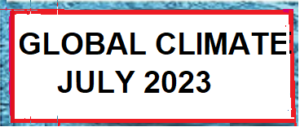
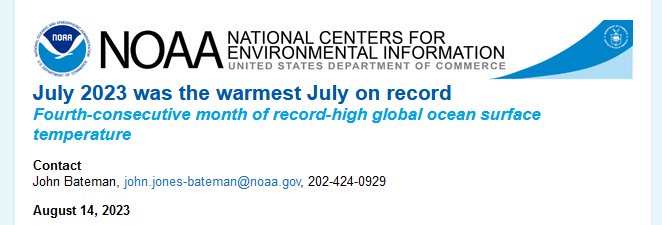
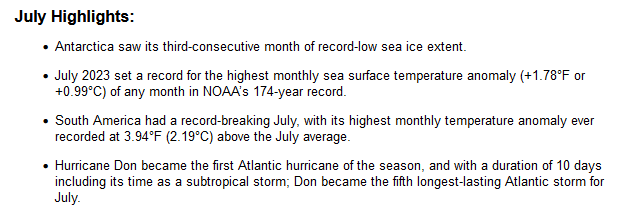

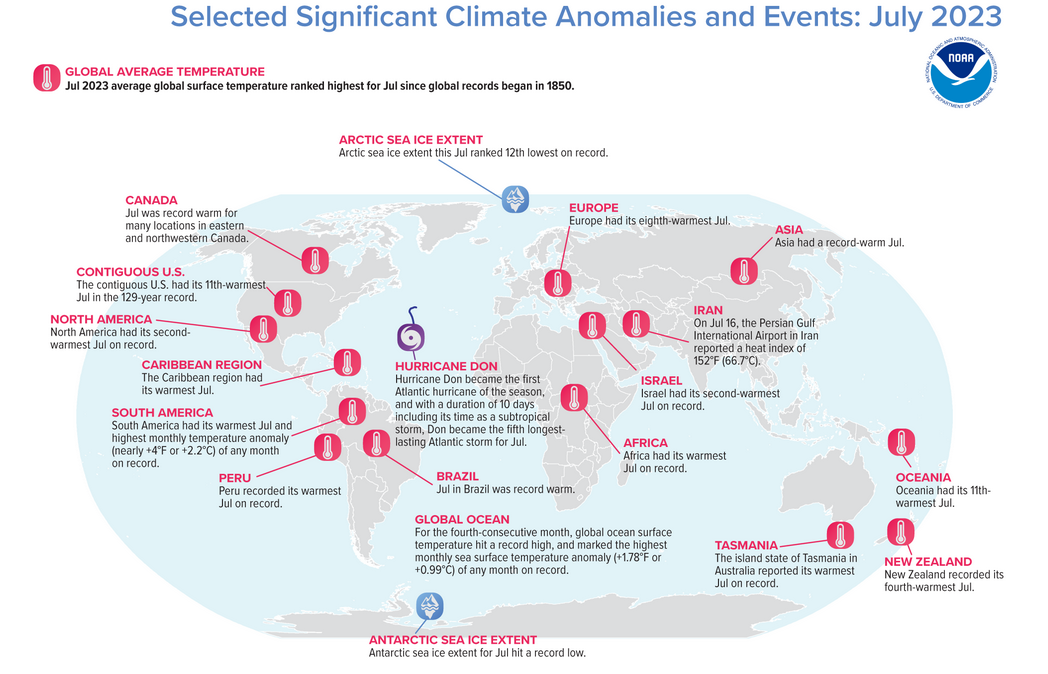
Monthly Global Temperature
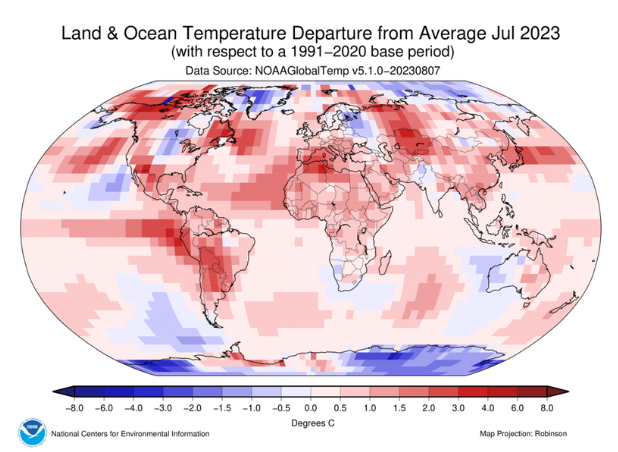
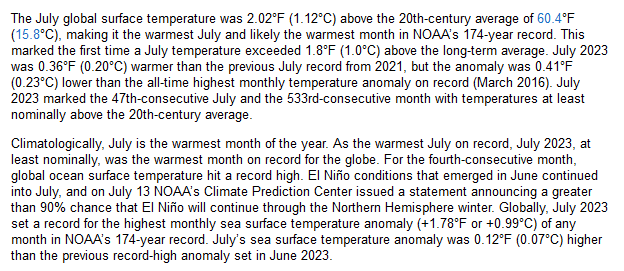
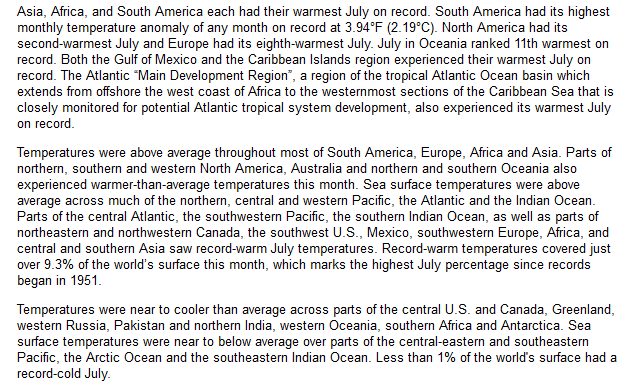
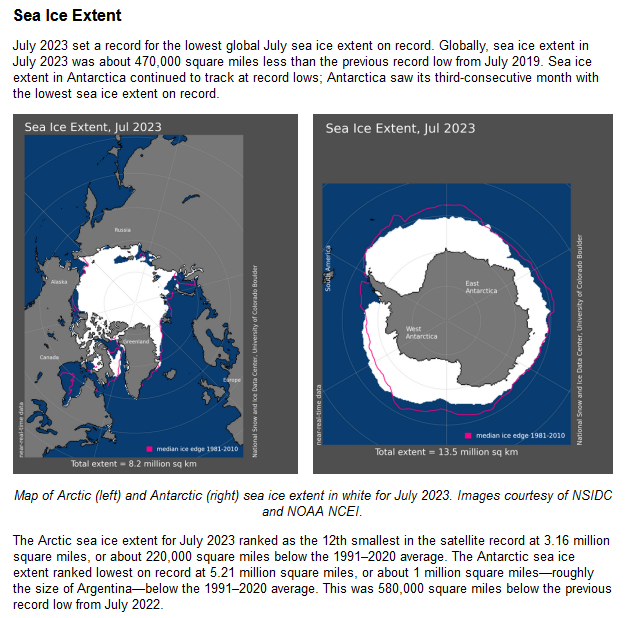
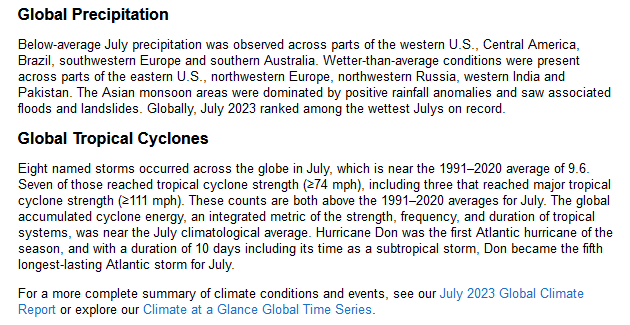
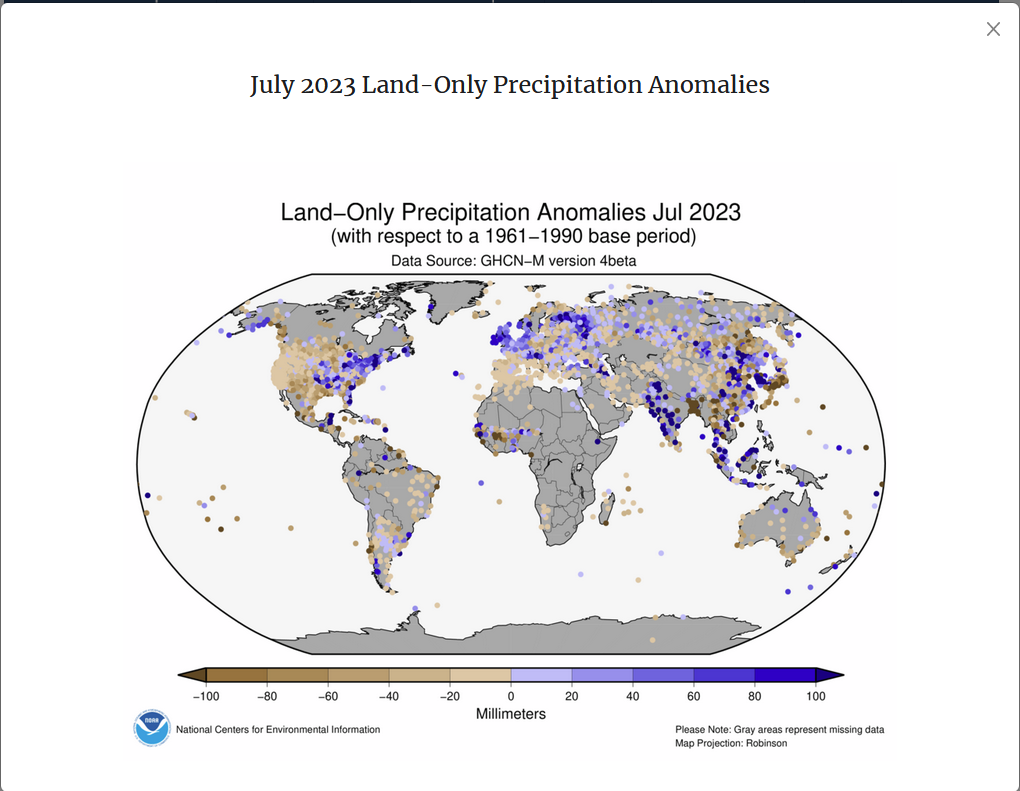
| Somehow people get the idea that Warmer means drier. In general, the opposite is the case. Warmer means more ocean evaporation. To some extent, the warmer atmosphere can hold more moisture but that is a relatively limited extent. Since the Earth revolves, the increased evaporation over the oceans does not all fall back into the oceans but results in increased precipitation over land. The warmer temperature however means increased evaporation from land masses. It means more rapid growth of vegetation and perhaps increased Consumptive Irrigation Requirements (CIR) but that is not necessarily the case. So it becomes quite complicated to predict the impact of more precipitation occurring minus more moisture from the land evaporating or possibly transpiring.
I need to explain this in more detail in one of my Explainers on Global Warming. For some areas, the tradeoff may indeed end up with a drier climate but for many areas, it will be wetter. |

–
| I hope you found this article interesting and useful. |
–